Abstract
C-type RNA viruses, originating in mouse, cat, hamster, and viper, catalyze the synthesis of DNA from its constituent deoxyribonucleoside triphosphates. Both the rate and extent of the reaction were significantly enhanced by brief treatment of the intact virus with ether. A proportion of the newly synthesized DNA was associated with virions when intact virus was used as template; this was not the case with ether-treated virus. In both cases, DNA extracted from the reaction mixture sedimented slowly, at about 2-4 S.
Full text
PDF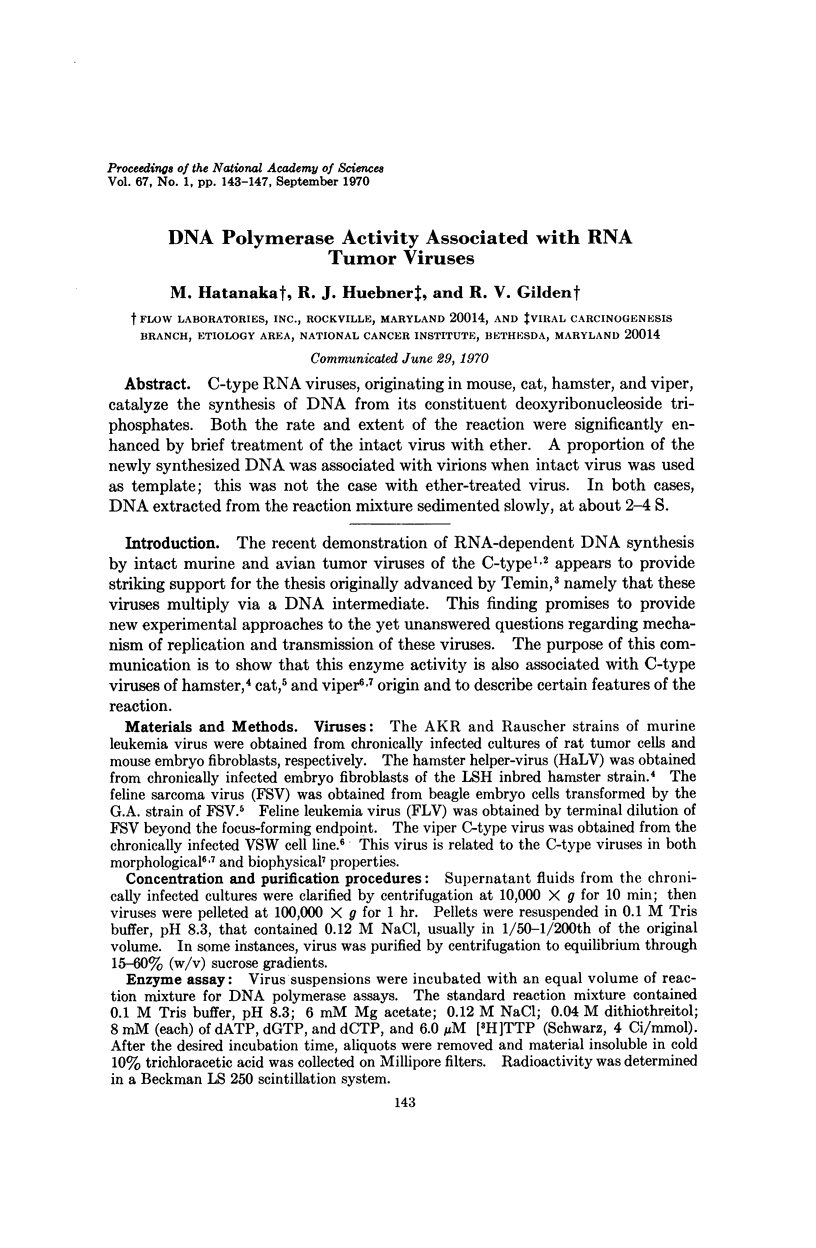
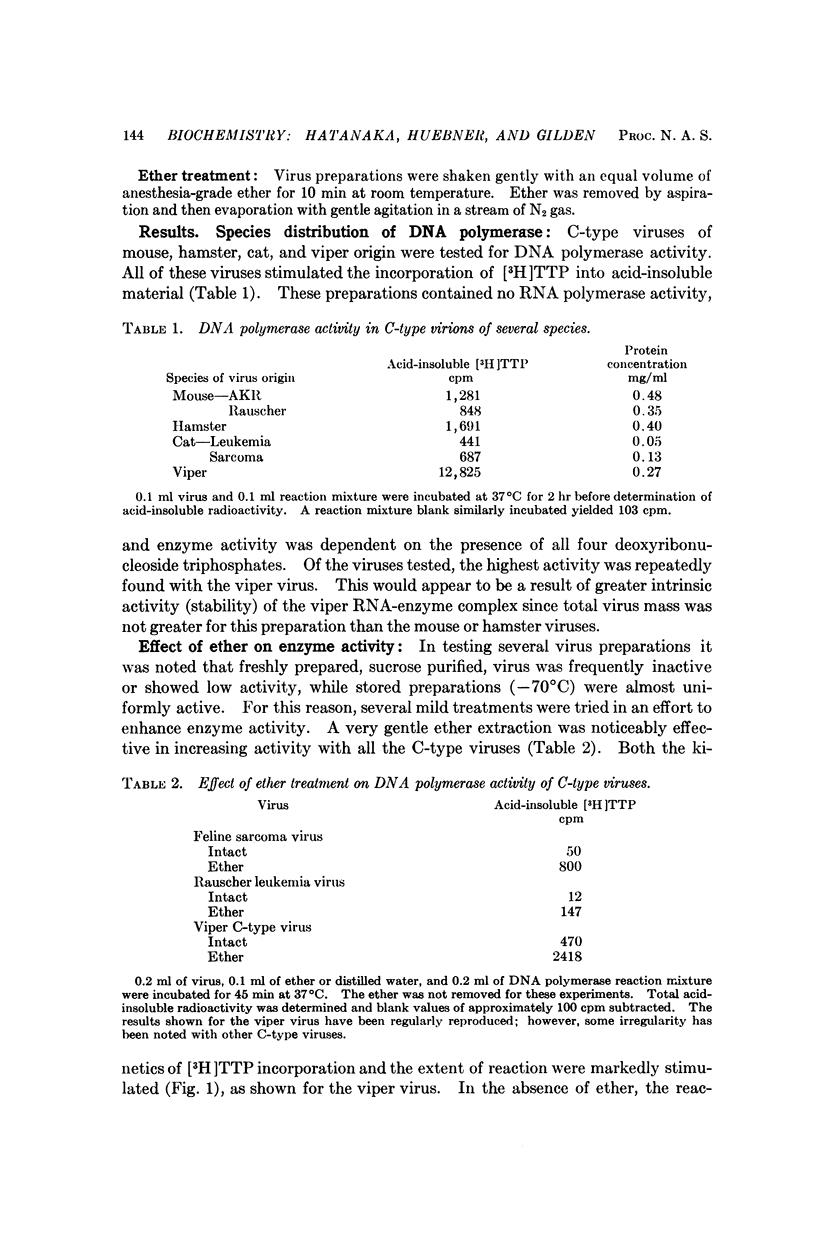
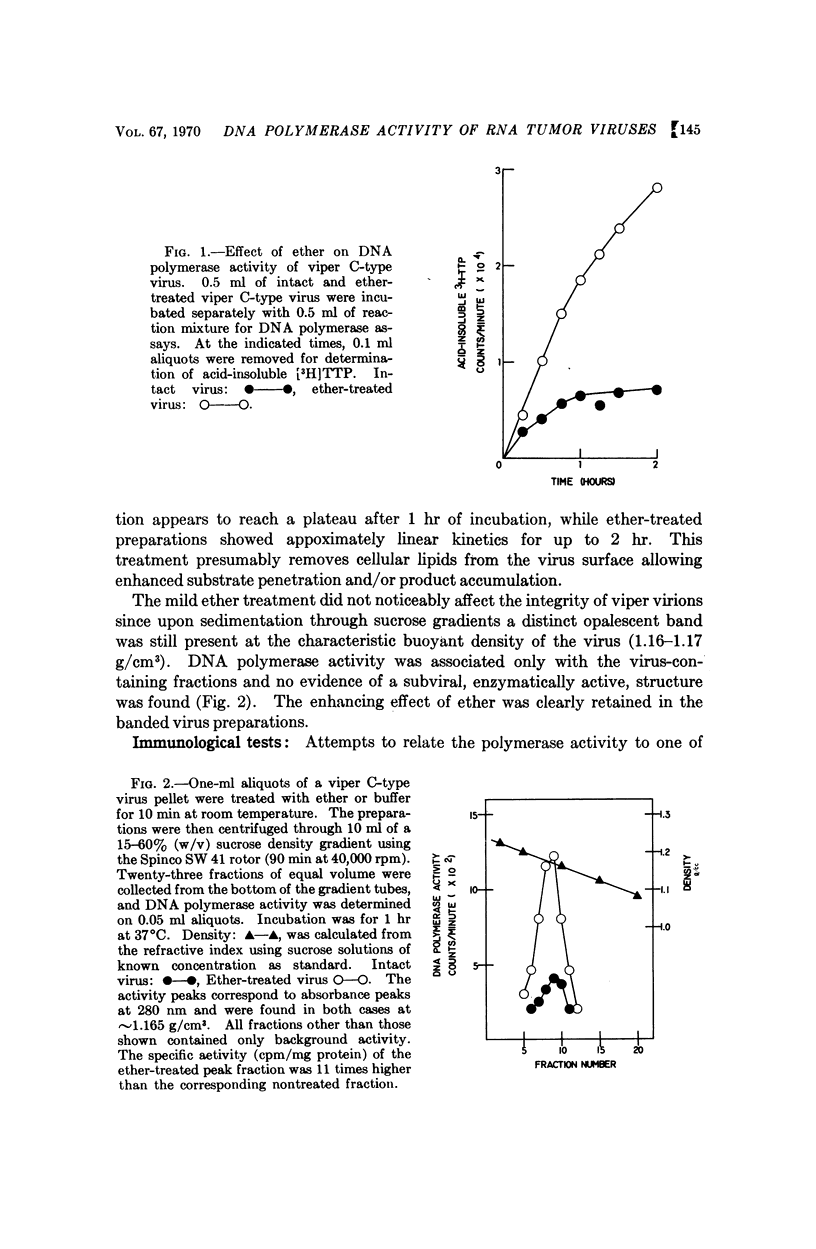
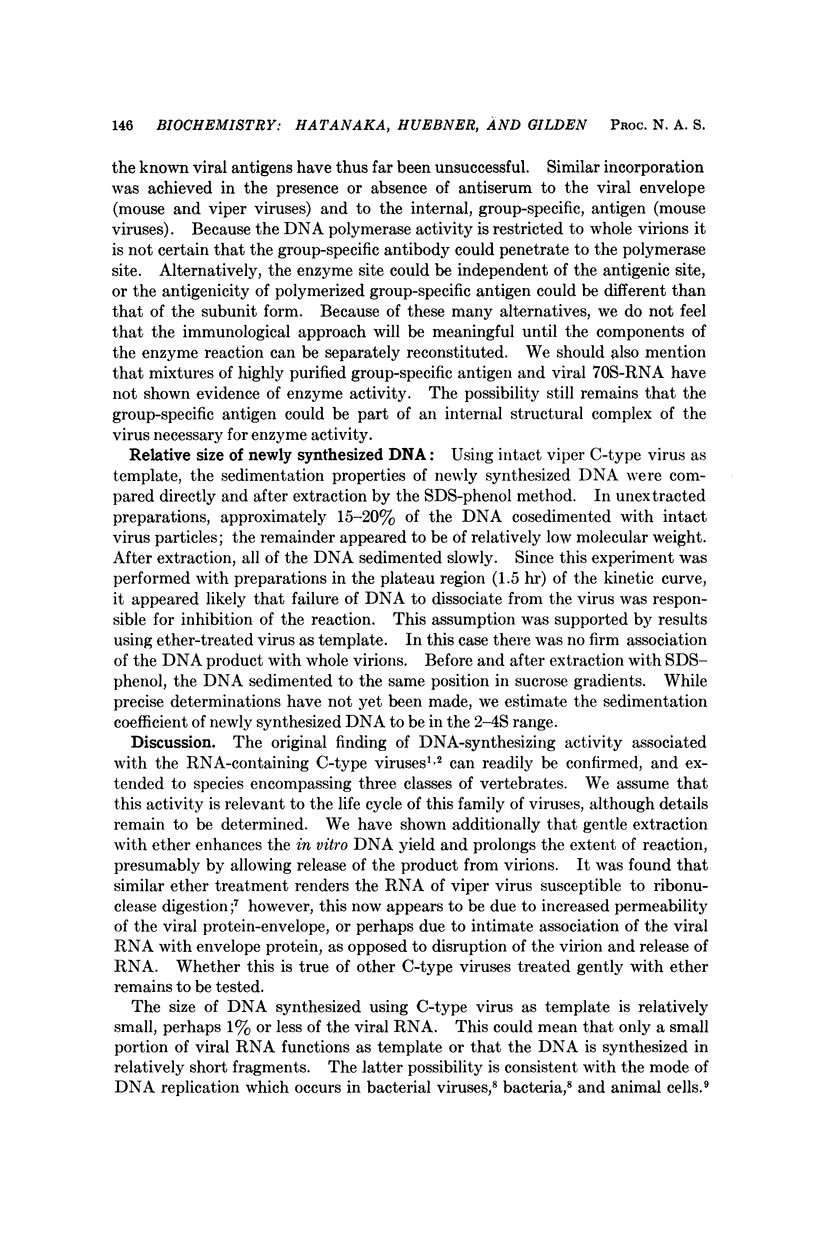
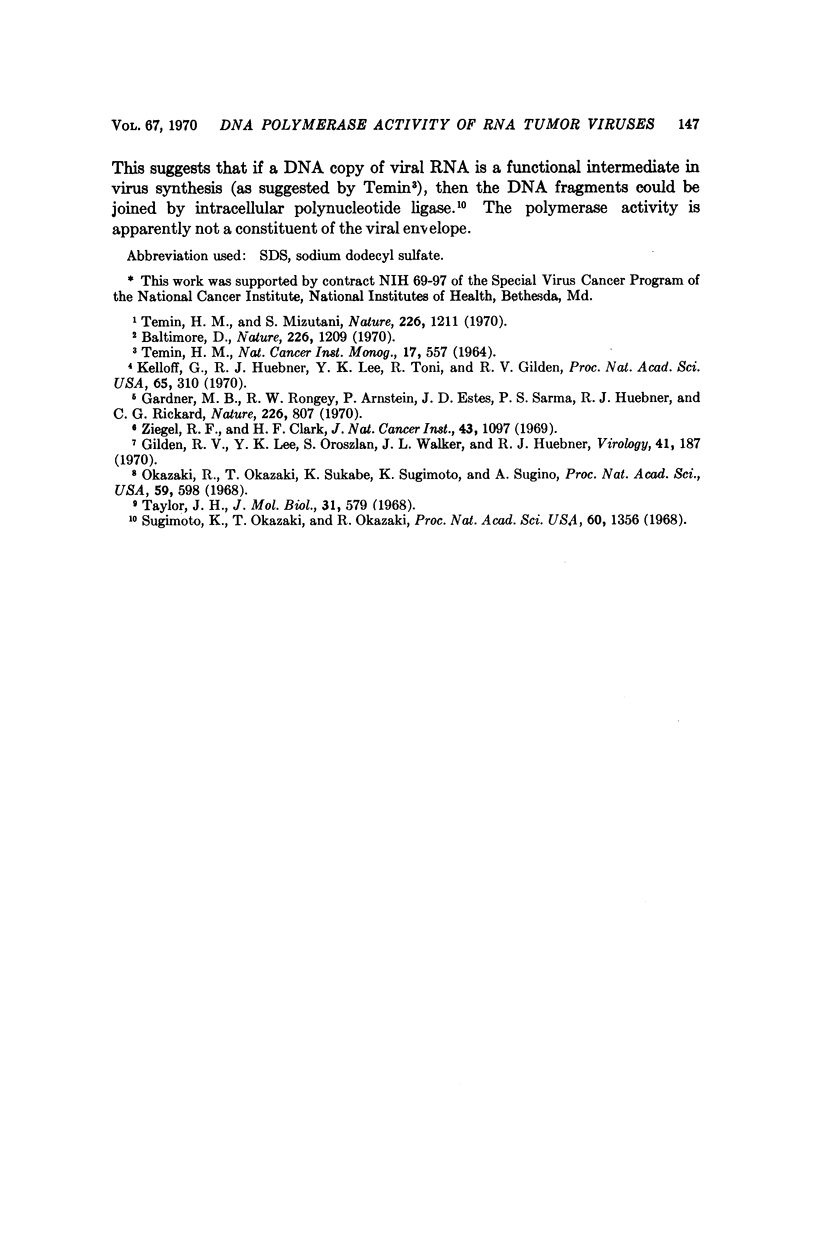
Selected References
These references are in PubMed. This may not be the complete list of references from this article.
- Baltimore D. RNA-dependent DNA polymerase in virions of RNA tumour viruses. Nature. 1970 Jun 27;226(5252):1209–1211. doi: 10.1038/2261209a0. [DOI] [PubMed] [Google Scholar]
- Gardner M. B., Rongey R. W., Arnstein P., Estes J. D., Sarma P., Huebner R. J., Rickard C. G. Experimental transmission of feline fibrosarcoma to cats and dogs. Nature. 1970 May 30;226(5248):807–809. doi: 10.1038/226807a0. [DOI] [PubMed] [Google Scholar]
- Gilden R. V., Lee Y. K., Oroszlan S., Walker J. L., Huebner R. J. Reptilian C-type virus: biophysical, biological, and immunological properties. Virology. 1970 May;41(1):187–190. doi: 10.1016/0042-6822(70)90069-3. [DOI] [PubMed] [Google Scholar]
- Kelloff G., Huebner R. J., Lee Y. K., Toni R., Gilden R. Hamster-tropic sarcomagenic and nonsarcomagenic viruses derived from hamster tumors induced by the Gross pseudotype of Moloney sarcoma virus. Proc Natl Acad Sci U S A. 1970 Feb;65(2):310–317. doi: 10.1073/pnas.65.2.310. [DOI] [PMC free article] [PubMed] [Google Scholar]
- Okazaki R., Okazaki T., Sakabe K., Sugimoto K., Sugino A. Mechanism of DNA chain growth. I. Possible discontinuity and unusual secondary structure of newly synthesized chains. Proc Natl Acad Sci U S A. 1968 Feb;59(2):598–605. doi: 10.1073/pnas.59.2.598. [DOI] [PMC free article] [PubMed] [Google Scholar]
- Sugimoto K., Okazaki T., Okazaki R. Mechanism of DNA chain growth, II. Accumulation of newly synthesized short chains in E. coli infected with ligase-defective T4 phages. Proc Natl Acad Sci U S A. 1968 Aug;60(4):1356–1362. doi: 10.1073/pnas.60.4.1356. [DOI] [PMC free article] [PubMed] [Google Scholar]
- Taylor J. H. Rates of chain growth and units of replication in DNA of mammalian chromosomes. J Mol Biol. 1968 Feb 14;31(3):579–594. doi: 10.1016/0022-2836(68)90429-4. [DOI] [PubMed] [Google Scholar]
- Temin H. M., Mizutani S. RNA-dependent DNA polymerase in virions of Rous sarcoma virus. Nature. 1970 Jun 27;226(5252):1211–1213. doi: 10.1038/2261211a0. [DOI] [PubMed] [Google Scholar]
- Zeigel R. F., Clark H. F. Electron microscopic observations on a "C"-type virus in cell cultures derived from a tumor-bearing viper. J Natl Cancer Inst. 1969 Nov;43(5):1097–1102. [PubMed] [Google Scholar]


